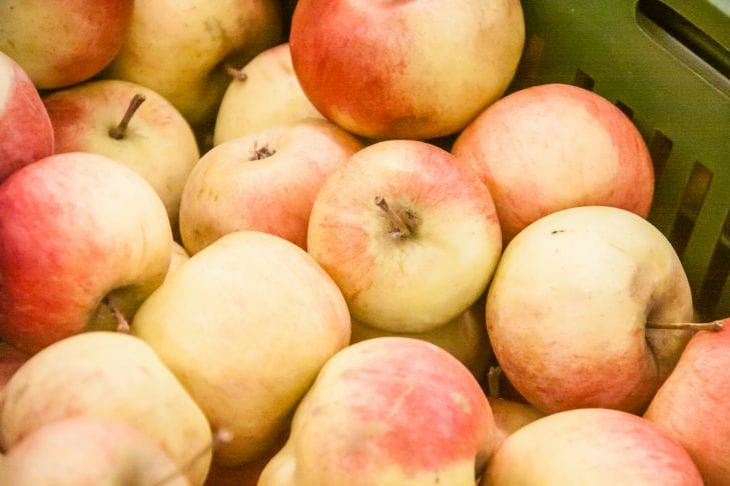The apple tree belongs to the Rosaceae family and is known for its rich history in Russia, dating back to the 10th century.
Apples are a storehouse of useful properties, they contain essential vitamins, minerals, sugars, pectins and other key nutrients.
From sugars like fructose, glucose and sucrose to acids like malic and citric, apples offer a diverse range of nutrients essential for our well-being.

In addition, apple seeds contain valuable fatty oils, and the peel contains flavonoids and vitamins. The mineral composition of apples is also impressive: they contain a large amount of potassium, calcium, magnesium, iron and phosphorus, as well as microelements such as cobalt, iodine, chromium and molybdenum.
The high content of potassium and magnesium in apples makes them especially useful for people with cardiovascular diseases.
The vitamins in apples, especially vitamin C, are found primarily under the skin, so it is recommended to eat apples without the skin whenever possible.
These fruits play an important role in improving digestion, stimulating blood circulation and helping with various ailments, including liver and kidney disease, joint problems and metabolic disorders.
Due to the low calorie content of apples, they are preferred by those who want to control their weight. The diuretic properties of apples make them useful for such diseases as kidney stones, vitamin deficiency, cough, migraine, constipation, atherosclerosis and common colds.
In addition to internal use, apples also provide external benefits. Their anti-inflammatory properties are used to treat skin conditions such as frostbite and ulcers, and apple juice is used in facial skin care to combat premature aging, improve elasticity, and add radiance to the complexion.
Not only the fruits, but also the leaves of the apple tree have medicinal properties. Warm tea from apple tree leaves is a popular remedy for colds, vitamin deficiency, fatigue and insomnia.
Both whole apples and their freshly squeezed juice, rich in vitamins and microelements, are recommended for daily consumption.
Blend apple juice with other juices, such as carrot, prune or beetroot, for a delicious, nutrient-rich blend, or add apples to fruit salads or baked goods for a fun winter treat.
One of the most valuable apple-based products is apple cider vinegar, known for its versatile uses.
Apple cider vinegar is used in cooking to enhance the flavor of salads, in cosmetics for skin care, and in folk medicine for its detoxifying and immune-boosting properties - for many, it is an integral part of the household.
Diluted with water and used as a hair rinse, it gives hair shine and elasticity.
However, people with gastrointestinal diseases should be careful when eating apples because of the coarse fiber they contain, which can aggravate diseases such as colitis or stomach ulcers.








